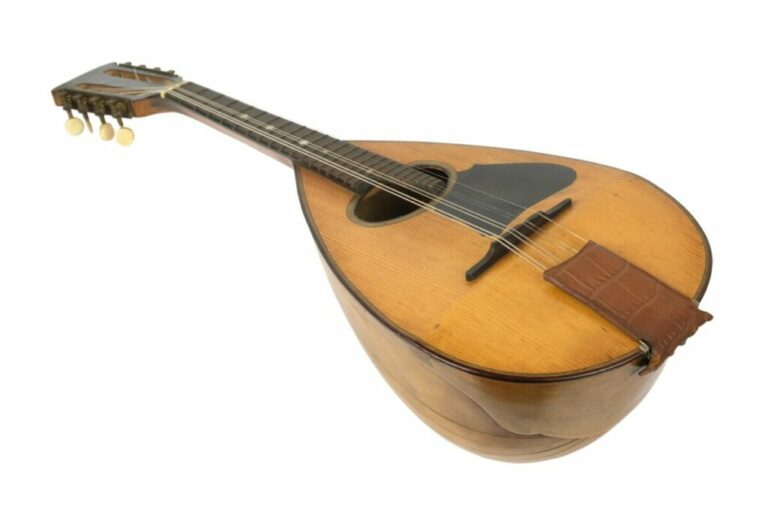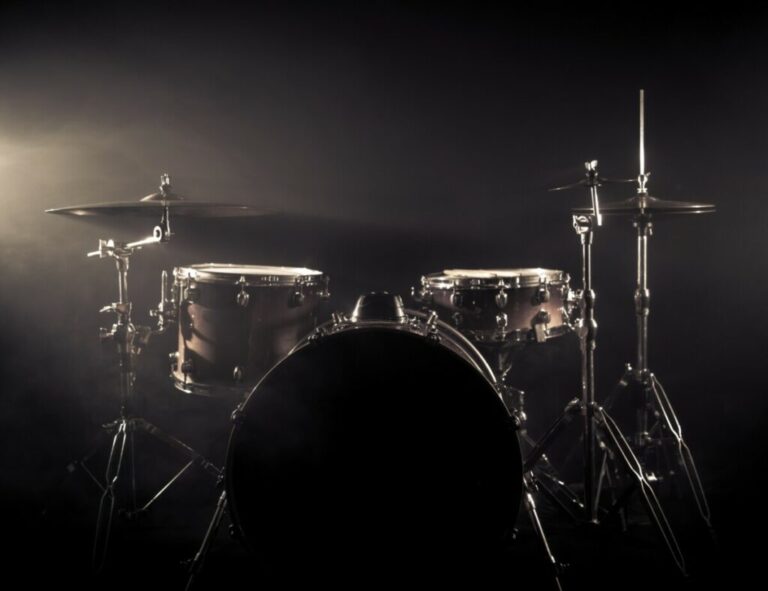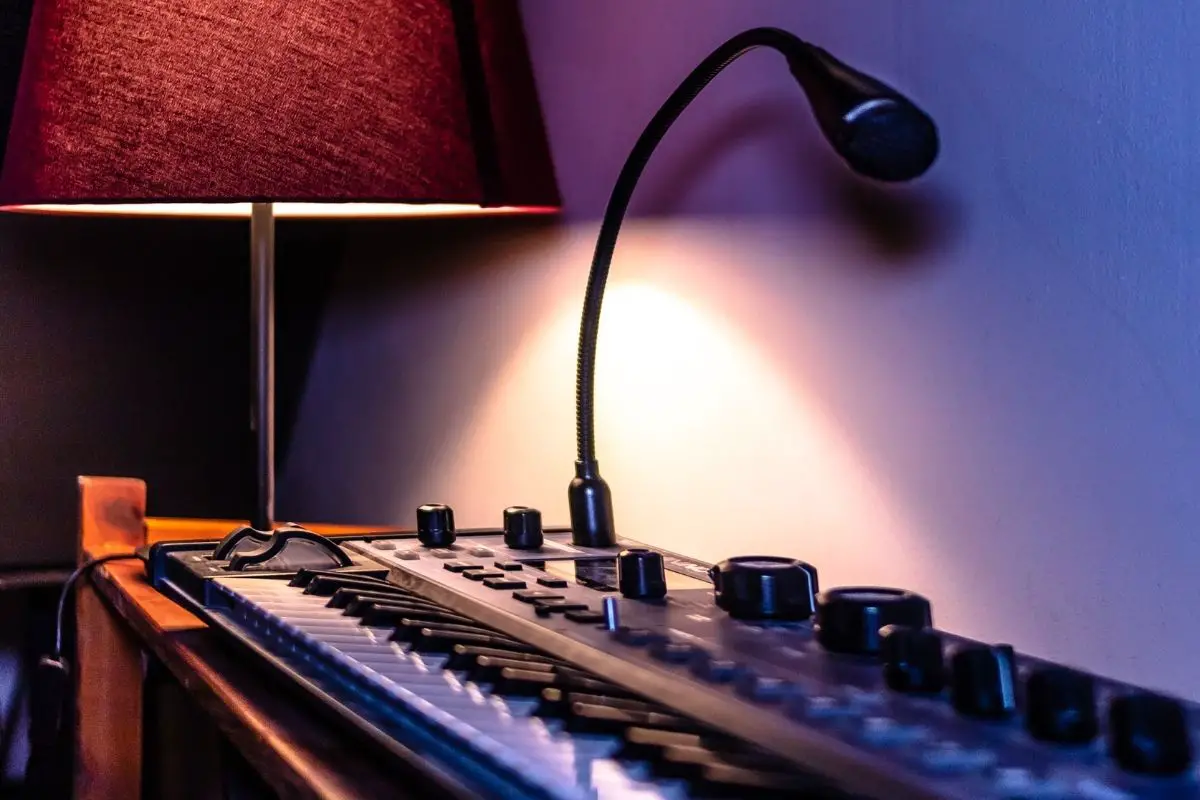Mastering Music Theory: The Essential Guide for Guitarists
As a guitarist, you’ve probably spent countless hours perfecting your technique, learning scales, and figuring out your favorite songs. But have you ever wondered why certain chord progressions sound pleasing to the ear or why some melodies stir emotions in ways others can’t? Welcome to the world of music theory! But how can a guitarist effectively learn music theory, and why should you even bother?
Music theory, essentially, is a tool that helps musicians understand the ‘why’ behind the ‘what’ in music. For guitarists, learning music theory can open up new avenues of creativity, aid in songwriting, and improve improvisational skills.
So, you don’t need music theory, but it might give you a unique perspective.
In the following sections, we’ll dive into music theory from a guitarist’s perspective. We’ll start with the basics, such as understanding notes and scales, and gradually move on to more complex concepts like chords and progressions. And while music theory might seem daunting at first, remember – it’s all about unlocking the full potential of your guitar playing.
Understanding the Basics: Notes and Scales
Let’s start by building a solid foundation in music theory. A key part of this is understanding notes and scales, which are the building blocks of all music.
The Musical Alphabet
In Western music, we have 12 notes: A, A#/Bb, B, C, C#/Db, D, D#/Eb, E, F, F#/Gb, G, G#/Ab. These notes are the fundamental units of music. On the guitar, each fret on a string represents a different note.
Scales
A scale is a series of notes played in ascending or descending order. The two most basic types of scales are major and minor scales.
- Major scales: Major scales have a bright, happy sound. The formula for a major scale is whole, whole, half, whole, whole, whole, half (W-W-H-W-W-W-H). For example, the G major scale would be G, A, B, C, D, E, F#, G.
- Minor scales: Minor scales have a sad, melancholic sound. The formula for a natural minor scale is whole, half, whole, whole, half, whole, whole (W-H-W-W-H-W-W). For instance, the A minor scale would be A, B, C, D, E, F, G, A.
Understanding scales is crucial for guitarists because they form the basis for soloing, improvisation, and melody creation.
Why is it Important To Learn Major Scales?
Learning major scales gives you an understanding of music as a whole. Ranges don’t only apply to guitars, but they also apply to keyboards, bass guitars, and even vocalists. This understanding gives you an idea of what music theory is.
Also, learning your guitar scales gives you a natural method of practice. Scales are common patterns of beautiful notes. By playing up and down those notes, your fingers will get more used to playing these notes.
With baby steps, scales can be your foundation. Your fingers may also naturally rest with a root note, the first note on any scale.
If you are reading this, chances are you have learned some guitar techniques through tabs. Tabs are great for giving beginners a feel for playing the guitar. They are also easy to learn, provided you can deal with significant drawbacks.
Guitar Music Theory Question: Guitar Tabs vs Music Notation
Music notation is more closely connected to music theory. Learning how to write music differs between the two methods.
What are Guitar Tabs?
Guitar tablature, often abbreviated to ‘tabs,’ is a system of music notation that’s specifically designed for fretted string instruments, like the guitar. In a tab, you’ll see six horizontal lines representing the six strings of the guitar. The top line corresponds to the first string (the thinnest), and the bottom line to the sixth string (the thickest).
Numbers placed on these lines indicate the fret where you should place your fingers. For instance, a ‘3’ on the top line means you should press down on the third fret of the first string.
Advantages of Guitar Tabs
- Ease of Use: Tabs are incredibly intuitive and easy to read. Even beginners without prior music theory knowledge can start playing songs using tabs.
- Visual Representation: Tabs provide a direct visual representation of the guitar’s fretboard, making it easier to understand where to place your fingers.
Limitations of Guitar Tabs
- Lack of Musical Information: While tabs tell you where to place your fingers, they typically don’t provide information about rhythm or timing. Some advanced tabs may include rhythm notation, but it’s not a standard practice.
- No Indication of Note Duration and Dynamics: Tabs don’t indicate how long a note should be held or the dynamics (how loud or soft a note should be played).
What is Music Notation?
Music notation, often referred to as ‘sheet music,’ is a universal language used to represent music. It uses a staff of five lines and four spaces, with each line or space representing a different pitch. The higher a note is placed on the staff, the higher its pitch.
In addition to pitch, music notation includes symbols for the duration (how long each note is played), dynamics, tempo, and other expressive elements.
Advantages of Music Notation
- Complete Musical Information: Unlike tabs, standard notation provides comprehensive information about the music, including pitch, rhythm, dynamics, and articulation.
- Universality: Standard notation is a universal language used by all musicians, regardless of their instrument. This makes it possible to communicate musical ideas to other musicians, even if they don’t play the guitar.
Limitations of Music Notation
- Learning Curve: Reading standard notation requires knowledge of music theory and takes time to master. It’s not as immediately accessible as tabs, especially for beginners.
- Lack of Fretboard-specific Information: Standard notation doesn’t tell you where on the fretboard a note should be played. The same note can often be played in multiple places on a guitar, leading to potential confusion.
3 Tips For Learning Your First Scale
A major scale consists of seven distinct notes, plus an eighth, which is the same as the first, but an octave higher. The major scale pattern is consistent, regardless of which note you start on. It follows this pattern: W-W-H-W-W-W-H.
To translate this to the guitar, a “whole step” means moving two frets up or down the fretboard, while a “half step” means moving just one fret.
1. Learn the Fretboard
Before you start learning scales, it’s essential to familiarize yourself with the guitar fretboard. Each fret on each string corresponds to a different note. Starting from the open string and moving up one fret at a time, the musical alphabet progresses from A to G before looping back around to A.
Remember, there’s a half-step (or one fret’s distance) between E and F, and B and C. All other natural notes have a whole step (or two frets’ distance) between them.
2. Start with the C Major Scale
The C Major Scale is a great starting point because it only contains natural notes, meaning there are no sharps or flats. Here’s how you can play the C Major scale on the guitar:
- Start on the 8th fret of the low E string (which is a C note)
- Move a whole step to the 10th fret of the E string (D)
- Move to the 7th fret of the A string (E)
- Move a whole step to the 9th fret of the A string (F)
- Move a whole step to the 10th fret of the A string (G)
- Move to the 7th fret of the D string (A)
- Move a whole step to the 9th fret of the D string (B)
- Finally, move a half step to the 10th fret of the D string (C)
That’s your first octave of the C major scale!
3. Practice Regularly
Now that you know how to play the C Major Scale, the key to mastering it is consistent practice. Start slow, ensuring you’re playing each note cleanly and accurately. As you become comfortable, gradually increase your speed.
Incorporate scale practice into your routine, and don’t rush the process. With time and patience, you’ll gain speed and fluidity.
How Do Scales Apply to Major Chords?
Once you learn a few scales, it might be time to move on to the next beast: chords. A major chord is made up of three notes and comprises the bulk of most songs you hear. If you know anything about pop songs, you may know that they use a pretty typical four-chord progression.
The Building Blocks of Chords: Triads
The fundamental building blocks of most chords are triads, which are groups of three notes. In a major scale, you can form a triad by taking the first (root), third, and fifth notes. These notes create the basic major and minor chords.
Major Chords
A major chord, often referred to by its root note (for example, “C”), is a triad consisting of the root, the major third, and the perfect fifth. If you look at the C Major Scale (C-D-E-F-G-A-B-C), the C Major chord would include the notes C (root), E (major third), and G (perfect fifth).
On the guitar, a common open C Major chord shape is:
- Ring finger on the 3rd fret of the A string (C)
- Middle finger on the 2nd fret of the D string (E)
- Open G string (G)
- Index finger on the 1st fret of the B string (C)
- Open high E string (E)
Minor Chords
Minor chords are triads, consisting of the root, minor third, and perfect fifth. To form a minor chord, you simply lower the third note of a major chord by a half step.
So, if you start with a C Major chord (C-E-G) and lower the third (E) by a half step, you get a C Minor chord (C-Eb-G).
On the guitar, a common open C Minor chord shape can’t be formed, but a typical shape for C Minor on the third fret would look like this:
- Index finger barring all strings on the 3rd fret
- Ring finger on the 5th fret of the A string (G)
- Pinky finger on the 5th fret of the D string (C)
- Middle finger on the 4th fret of the B string (Eb)
Altered Chords
Altered chords are variations of major or minor chords where one or more notes have been raised or lowered by a half-step. This can include 7ths (major, minor, dominant), augmented chords, diminished chords, and more.
For example, a C Major 7th chord is a C Major chord with an added B (major 7th). This gives the chord a jazzy feel.
A C Dominant 7th (or simply C7) is a C Major chord with an added Bb (minor 7th). This chord often resolves to an F major chord in music.
Diminished and Augmented chords alter the 5th of the chord. A C Diminished chord lowers the 5th (G becomes Gb), while a C Augmented raises the 5th (G becomes G#).
Learning these chords involves familiarizing yourself with new chord shapes and understanding where they’re commonly used in music.
A Deep Dive into Guitar Modes [And How They Can Help Your Guitar Playing]
Guitar modes are an essential aspect of music theory that can add new colors and flavors to your guitar playing. They are derived from the major scale and consist of seven different scales, each with its unique sound and character. In this section, we’ll explore these different modes, how they are constructed, and how you can use them to spice up your music.
Ionian Mode (The Major Scale)
The Ionian mode is essentially the Major Scale we previously discussed. It has a bright, happy sound, making it a common choice for upbeat and positive music.
Pattern: W-W-H-W-W-W-H
For example, in the key of C: C-D-E-F-G-A-B-C
Dorian Mode
The Dorian mode is similar to the major scale but with a flattened 3rd and 7th. It has a jazzy, bluesy sound and is often used in folk music and jazz.
Pattern: W-H-W-W-W-H-W
For example, in the key of D: D-E-F-G-A-B-C-D
Phrygian Mode
The Phrygian mode has a Spanish or Middle Eastern flavor. It’s characterized by a flattened 2nd, 3rd, 6th, and 7th.
Pattern: H-W-W-W-H-W-W
For example, in the key of E: E-F-G-A-B-C-D-E
Lydian Mode
The Lydian mode is like the major scale but with a raised 4th. It has a dreamy, ethereal sound that’s often used in film scores and ambient music.
Pattern: W-W-W-H-W-W-H
For example, in the key of F: F-G-A-B-C-D-E-F
Mixolydian Mode
The Mixolydian mode is a favorite among rock and blues guitarists. It’s like the major scale but with a flattened 7th, giving it a bluesy, rock sound.
Pattern: W-W-H-W-W-H-W
For example, in the key of G: G-A-B-C-D-E-F-G
Aeolian Mode (The Natural Minor Scale)
The Aeolian mode, also known as the Natural Minor Scale, has a sad and melancholic sound. It’s common in ballads, sad songs, and heavy metal.
Pattern: W-H-W-W-H-W-W
For example, in the key of A: A-B-C-D-E-F-G-A
Locrian Mode
The Locrian mode is the least common of the modes and has a dissonant, unstable sound. It’s characterized by a flattened 2nd, 3rd, 5th, 6th, and 7th.
Pattern: H-W-W-H-W-W-W
For example, in the key of B: B-C-D-E-F-G-A-B
Using Modes in Your Playing
Understanding the theory behind modes is great, but it’s even more important to incorporate them into your playing:
- Experiment with Different Sounds: Play through each mode and listen to the different flavors they bring. This will help you decide which mode to use depending on the emotion you want to convey in your music.
- Practice Over Backing Tracks: Use backing tracks to practice improvising with different modes. Focus on one mode at a time until you are comfortable with how it sounds.
- Compose with Modes: Try composing melodies and solos using different modes. See how the mood of your music changes as you switch between modes.
10 Guitar Music Theory Tips You Can Use To Improve Your Guitar Playing
We’ve mentioned the two big ones: scales and chords. But there are a couple of essential elements that we need to delve into on this topic. We will get into those details below.
1. Start with the Basics
Before delving into complex topics like modes and chord progressions, ensure you have a solid understanding of the fundamentals. This includes learning the names of the notes on your fretboard, understanding the structure of major and minor scales, and constructing basic chords.
2. Use Online Resources
The internet is filled with helpful resources for learning music theory. Websites like Music Theory for Guitar, YouTube tutorials, and online courses can be incredibly helpful. Just make sure to follow a structured learning path to avoid getting overwhelmed.
3. Learn to Read Sheet Music
While tabs are easy to use and get you playing quickly, learning to read standard notation can open up a new world of music. It will allow you to play pieces written for other instruments and understand musical concepts more deeply.
4. Study Song Structures
Analyzing the structure of songs you like can provide valuable insights. Look at how songs are structured (verse, chorus, bridge, etc.), what chords are used, and how melodies are constructed.
5. Understand Key Signatures
Learning about key signatures will help you understand what notes and chords are most likely to appear in a piece of music. It can also help with writing your own music and improvising solos.
6. Practice Ear Training
Ear training is when you teach your ear to pick up the natural tone of the music. It requires regular practice, but with enough exercise, you can identify certain notes with relative ease.
Take your favorite song, a tuner, and copy the notes down. You can do this on sheet music for bonus points, but this is necessary.
7. Apply Theory to Your Playing
Always try to apply the theory you learn to your actual playing. Whether practicing scales, learning a new song, or writing your own music, always be aware of the theory behind your playing.
8. Be Patient
Learning music theory takes time and patience. Don’t be discouraged if you don’t understand a concept right away. Take your time, practice regularly, and the pieces will gradually fall into place.
9. Join a Music Community
Joining a music community, whether online or offline, can provide support and inspiration. You can ask questions, share your progress, and learn from others’ experiences.
10. Keep a Music Theory Journal
Keep a notebook where you write down what you’ve learned. This will help reinforce the concepts and provide a quick reference when needed.
With all these tips, you can own the title of a classically trained musician.
What is A Classically Trained Musician?
A classically trained musician learns using the old methods of teaching music. If you haven’t guessed it by now, that means learning music theory. Some of the best metal guitarists you know today learn music theory.
As a good example, let’s take a look at the work of Brendan Small. He is known to be the lead guitarist of Dethklok. If you don’t understand Dethklok, just know it’s a cartoon band from one of Adult Swim’s most ridiculous and entertaining shows that never finished. Check out his work from Metalocalypse below.
While being part of a goofy cartoon may not seem cool, listening to their talented guitar work is enough to bring you over the edge. Where did Brendan Small get so good? He started by learning music theory at the Berklee College of Music.
While there is something to be said for people who start in their parent’s garage, that is no substitute for a good foundation of rock n’ roll. Many of us won’t be able to go to college for this, which means that our next best bet is learning from those that did.
Conclusion
While learning music theory may seem old, archaic, and tired, many excellent guitarists and famous musicians might disagree with you. Through awareness of scales and chords, you will have a firm understanding of learning theory.
As a lead guitarist, it will give you better abilities to coordinate with vocalists and bassists on a combination of tones that will create beautiful music. With drummers, it will give you a firm understanding of rhythm across multiple instruments.
Whether you are ear training or writing sheet music, classically trained metal guitarists exist. Some of the best musicians are those who know music theory.








